
Operations
Covid-19: what is the shipping industry doing to help?
Despite being severely hit by the coronavirus crisis, the maritime sector has shown great support towards struggling communities. Adele Berti look at some of the positive contributions made by those working in the cruise and shipping industries during the pandemic.
Image:
The convoluted story
behind the failing Port of Hambantota, erected with much ado on Sri Lanka’s southern shore, has become to many a clear example of the dangers posed by China’s forceful use of financial and political influence over neighbouring developing nations.
The expectations and promises of flourishing trade, new employment and wealth brought to one of the country’s poorest regions were nearly as astounding as the port’s eventual demise: Hambantota fared so badly, mostly ignored by thousands of ships passing it by daily, that it eventually defaulted on its debts and the Sri Lankan Government had little choice but to hand over 80% of the port’s ownership to China, as well as a large swathe of surrounding land on a 99 year-long lease.
Three decades in the making, Hambantota Port was repeatedly shot down by experts, with multiple feasibility studies showing it couldn’t compete with the thriving Port of Colombo, the largest in Sri Lanka, which also has plenty of potential for expansion.
Nevertheless, the warnings were ignored, and the port came to be thanks to a combination of former President Mahinda Rajapaksa’s egocentric agenda to revive his home region and main political base and China’s opportunistic strategies to gain power in the region. Recently, a New York Times investigation revealed that many backdoor deals were struck from the project’s inception, all while the involved parties promised to deliver “the biggest port constructed on land in the 21st century”.
Today, Hambantota Port is all but abandoned, with wildlife roaming free on its mainly deserted premises. Shipping activity is scarce: according to statistics from the Central Bank of Sri Lanka, Hambantota was the only port with a negative growth rate in 2015 and 2016, and has a declining number of vessel arrivals.
The Sri Lanka Ports Authority (SLPA) attributed the port’s declining performance to the global slowdown in vehicle transhipment. But as the investigation and a collection of cables, emails and intelligence files published on WikiLeaks reveal, the story behind Hambantota’s rise and fall is far more complex than the usual struggling port struck by tough economic times.
Sailor’s Society sets up Covid-19 helpline in the UK
Faced with an increase in calls for help and advice during the pandemic, British maritime welfare charity the Sailors’ Society recently launched a coronavirus-dedicated helpline for seafarers and their families.
The service, which runs 24 hours a day, offers support and welfare to those affected by the virus or concerned about the crisis. The Sailor’s Society is also giving out grants to seafarers who have lost their job as a result of the pandemic.
In addition, the charity has now set up an advice hub, a Facebook support group and other practical resources to provide relief and support to struggling workers.
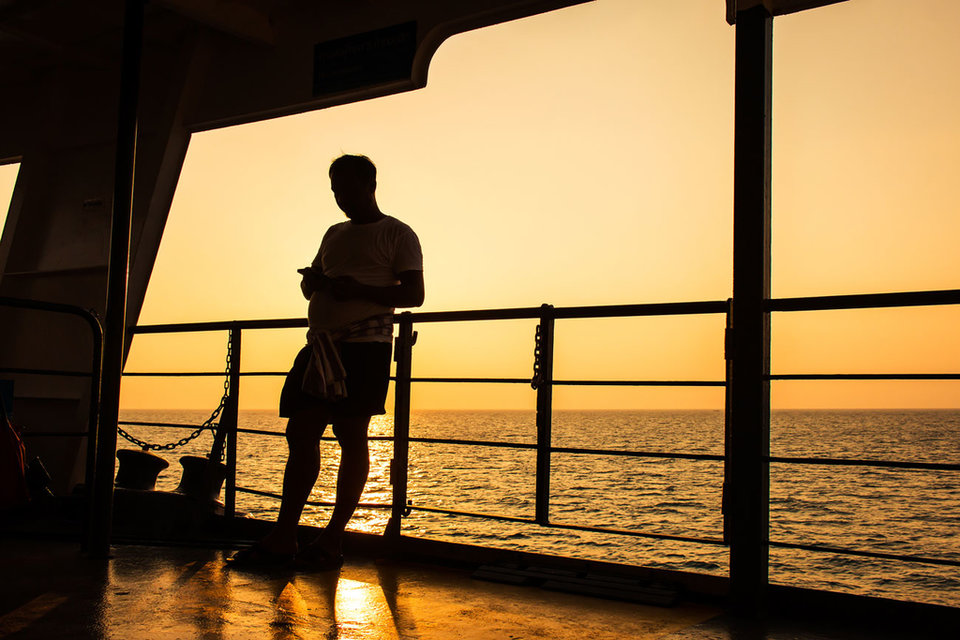
Image:
Abu Dhabi Ports rolls out ‘Horns of Hope’ solidarity initiative
Global trade enabler Abu Dhabi Ports recently launched a relief package designed to support its investors and customers during the pandemic. Included in the package are rent deferments for Q2, a freeze on late payment penalties, and the removal of application fees for investors.
The company also recently set up testing facilities at its Zayed and Khalifa ports capable of processing up to 700 people per day.
In late April, Abu Dhabi Ports kicked off a ‘Horns of Hope’ initiative that called on docked ships around the world to sound their horns every evening to thank maritime workers and other frontline staff. The initiative was quickly picked up by several global hubs, including Antwerp, Rotterdam and Barcelona in Europe, Alexandria in Egypt, and Tripoli in Lebanon.
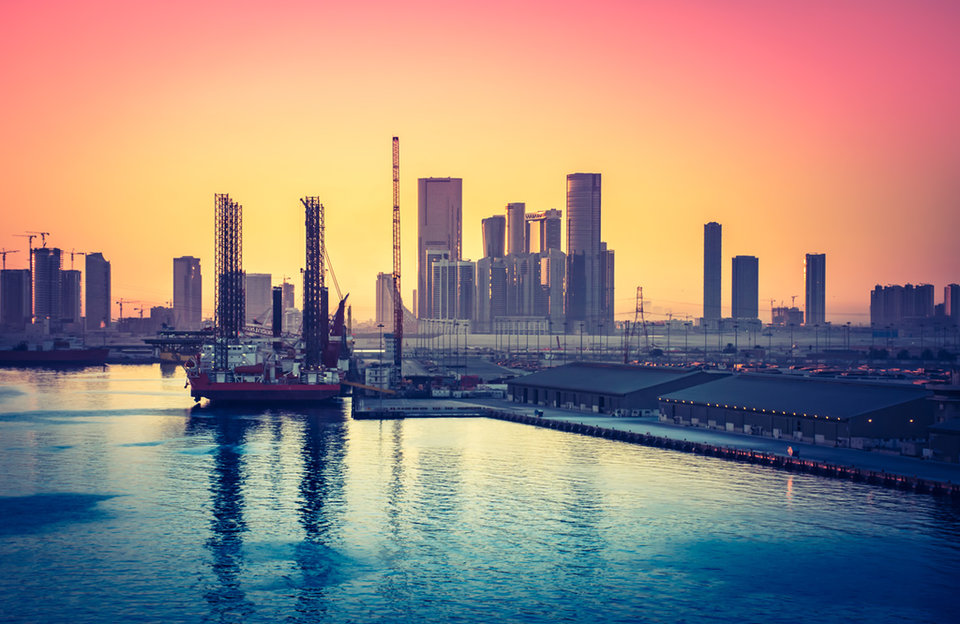
A port in Abu Dhabi, UAE.
MSC Group turns passenger ship into Covid-19 hospital
One of the most affected countries in the world, Italy announced plans in March to convert a passenger ship into a floating hospital for coronavirus patients.
Belonging to the MSC Group fleet, the ship was operated by Grandi Navi Veloci and docked at the port of Genoa to help free up spaces in overcrowded hospitals.
Initially set to host 25 patients, the Splendid ferry has been equipped with medical areas and accommodation for cabin and healthcare staff. In case of emergency, it could reach a total capacity of 400 beds.
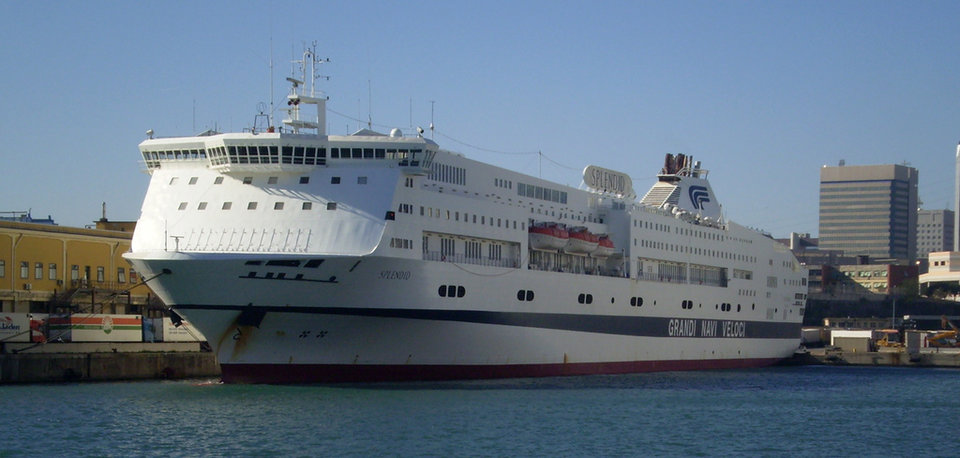
The Splendid ferry in 2007. Image: Public Domain
RMNEF provides support package for seafaring families in the UK
Earlier in April, the UK’s Royal Merchant Navy Education Foundation (RMNEF) launched a relief package for local fishermen and their families in collaboration with the Fishermen's Mission, which coordinates the initiative.
As part of the scheme, seafaring families affected by the crisis are eligible for a £250 grant to address short-term financial pressures and purchase educational tools.
According to an RMNEF press release, the package is particularly designed for frontline staff whose families “have plunged below the breadline and often do not have access to basic tools like laptops”.
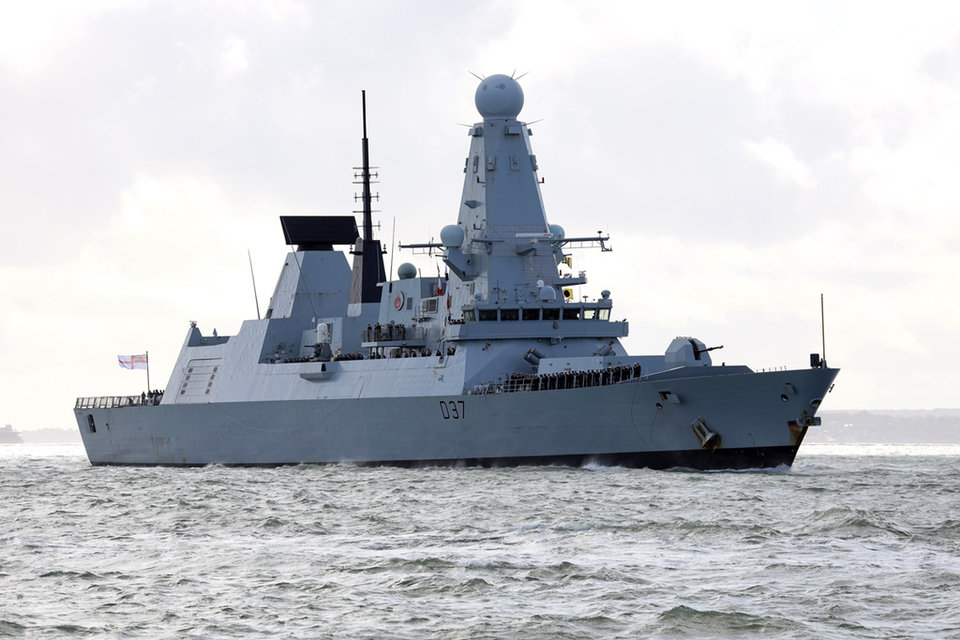
Royal Navy destroyer HMS DUNCAN. Image: Kevin Shipp / Shutterstock.com
IMO steps in on individual cases
The International Maritime Organization (IMO) has been coordinating efforts to safeguard the industry since the early days of the outbreak.
While these have been mainly focused on international mediation and sector-wide initiatives, the agency has also been providing more practical help. Earlier this year, it set up an internal team - in collaboration with the International Transport Workers’ Federation and several other organisations - to resolve individual cases around the world.
In recent times, it helped repatriate a British seafarer stranded abroad due to travel restrictions and coordinated action to rescue a critically ill seafarer from a ship out at sea.
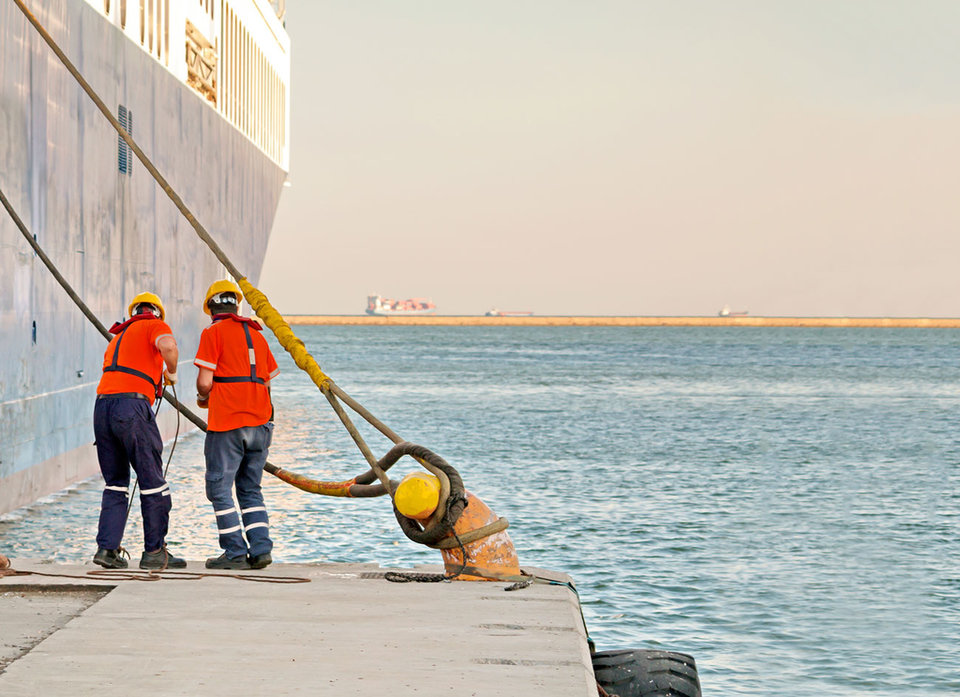
Greek shipping industry sends aid to local frontline staff
The Union of Greek Shipowners (UGS) and its collective body, the Greek Shipowners’ Social Welfare Company SYN-ENOSIS, have been collaborating with the local government to supply medical equipment throughout the country. As of late March, donations included 335 medical ventilators for intensive care, 100 bedside monitors and 100 hospital beds.
According to a press release, the USG also supplied the local police with “vehicles of different types” and protective equipment. In the same period, it launched a funding initiative that raised over €10m in five days.
Finally, the two organisations used all the funding received during the year to purchase 20,000 diagnostic tests and give them to university laboratories in Attica and Thessaloniki.
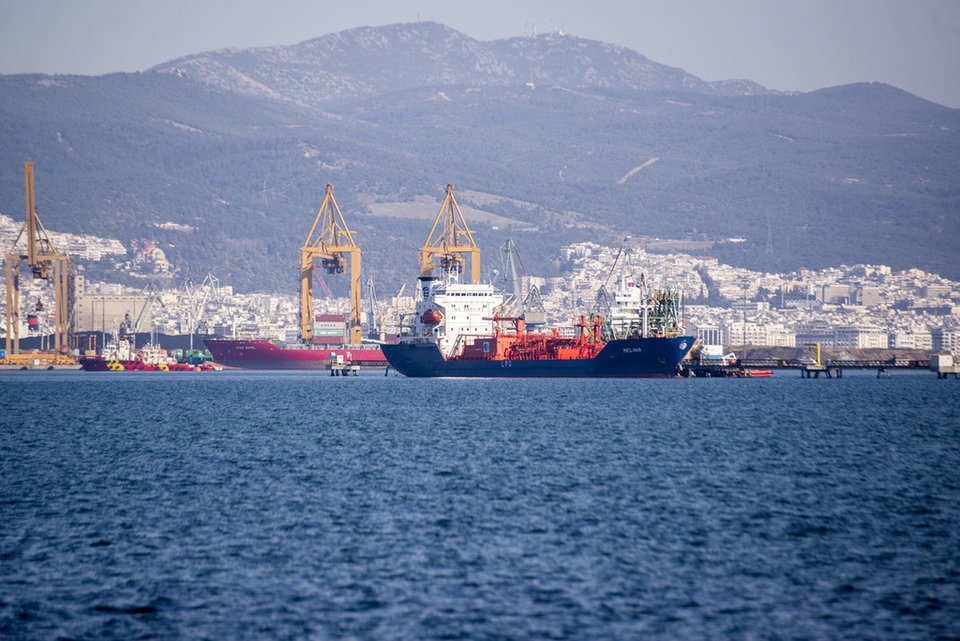
Port of Thessaloniki, Greece. Image: Giannis Papanikos / Shutterstock.com
Crowley Maritime designs ‘medical support barge’ in the US
US-based marine and logistics solutions provider Crowley Maritime recently unveiled a design for a ‘medical support barge’ to provide emergency housing during the pandemic.
According to Crowley they can accommodate over 500 people per barge and be placed “virtually anywhere on water, including coastal cities, harbour communities and river communities".
Meanwhile, Crowley said that other maritime assets are available for medical and housing use. These include in-house naval architecture and marine engineering services, as well as staffing capacity for supplying mariners, electricians, stewards and cooks.
Crowley Logistics joined Caribbean Produce Exchange to provide 16,000lbs of food to people impacted by COVID-19. Image: Crowley Maritime
Maritime charities launch funds in the UK and beyond
In recent times members of the Maritime Charities Group have come together to show their support for the British and international seafaring community.
For instance, in April London-based Seafarers UK launched a £2m Covid-19 emergency fund, £500,000 of which has been immediately allocated to assist fishing communities across Britain.
Other organisations, like the UK-based ITF Seafarers’ Trust and the TK Foundation in the Bahamas, have been donating funds to different causes. The former set aside £1m for seafarers internationally and has already allocated over £600,000. Meanwhile, the TK Foundation has donated $300,000 to seafarer centres and other welfare organisations around the world.
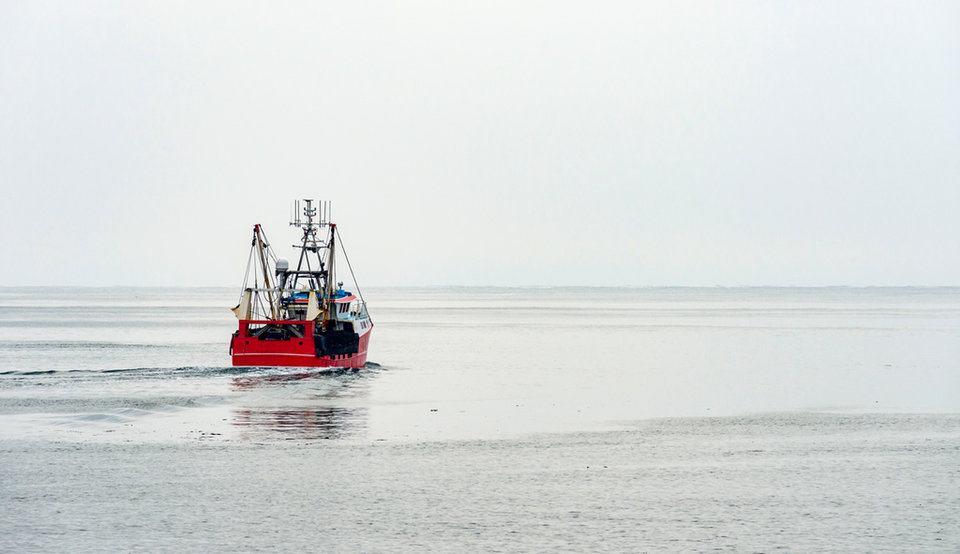
A fishing ship off the coast of Cornwall, UK.
AmaWaterways gives out free tickets for NHS staff
Solidarity has equally come from the cruise sector, which has contributed with a host of initiatives that include food donations, horn sounding and more.
A prime example is US-based river cruise liner, which is now offering future cruise certificates to active frontline medical staff and other key workers. Available on European and Asian routes with one paying guest, the tickets can be booked until 31 December 2021.
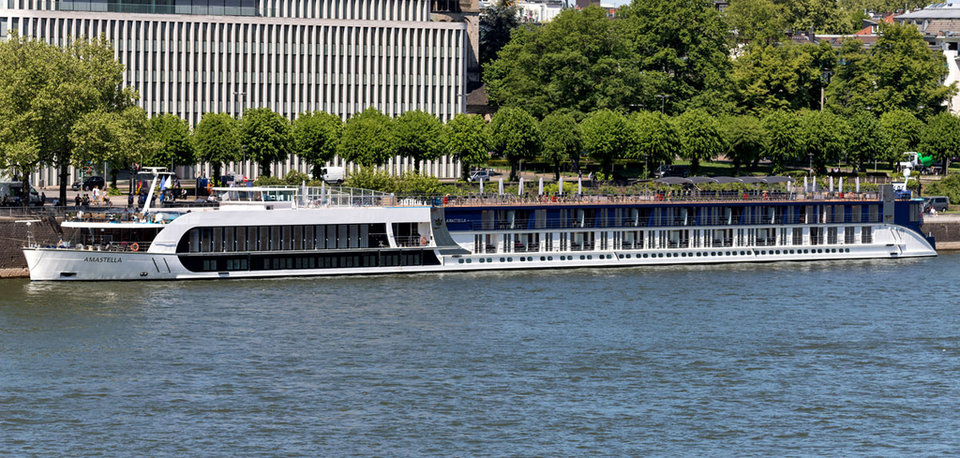
AmaWaterways’ river cruise ship AMASTELLA in Cologne, Germany. Image: Bjoern Wylezich / Shutterstock.com
CroisiEurope gives nurses free accommodation on board MS Botticelli
In early April, French river cruise line CroisiEurope used its ship, MS Botticelli, to host nurses who had to travel 90 miles a day to help treat coronavirus patients at the Pompidou Hospital in Paris, France.
The hospital had to bring in nurses from all over the country to help face an increase in cases. With some staff having to travel long distances to reach the capital, CroisiEurope offered its ship to host them with complimentary breakfast and dinner on board.
The Botticelli can accommodate up to 25 nurses. Staff on board had been rigorously trained to follow a tight protocol regarding cleaning and wearing masks.
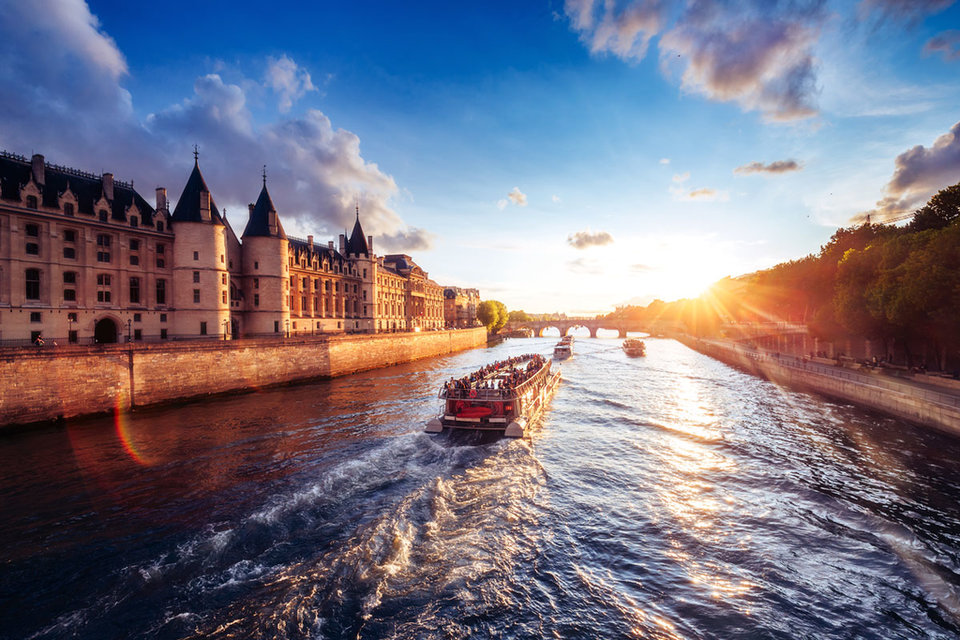
The Seine river in Paris, France.